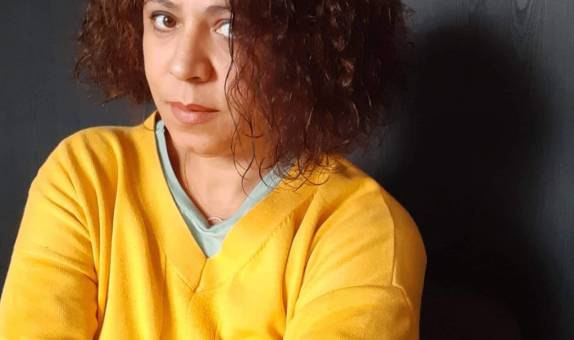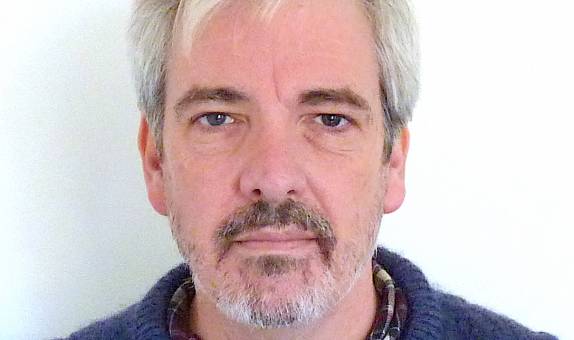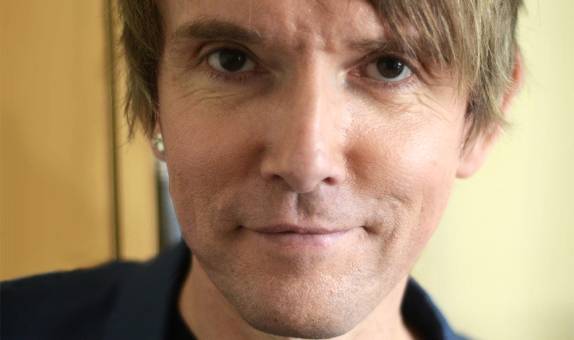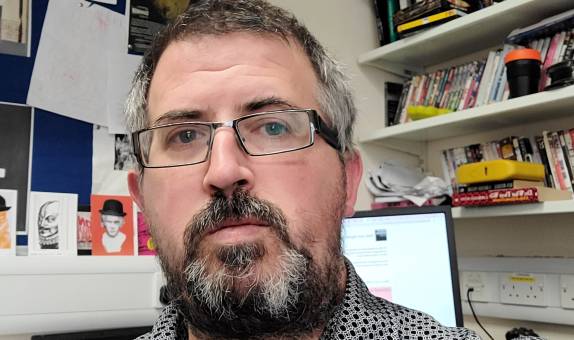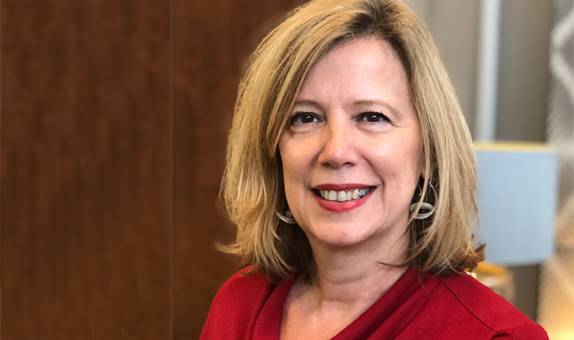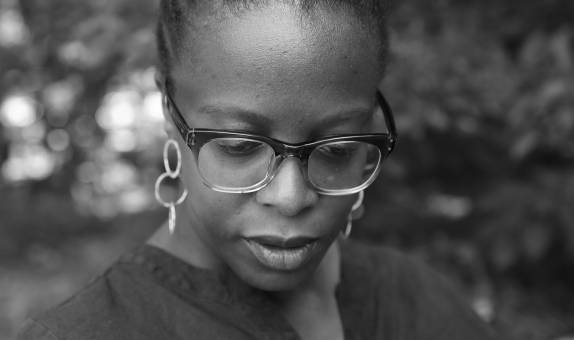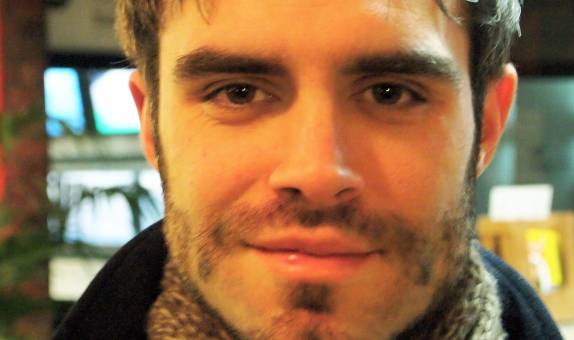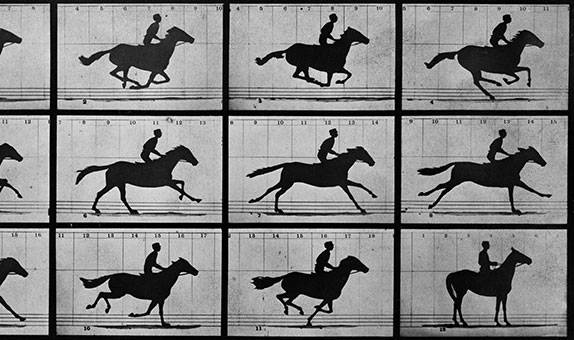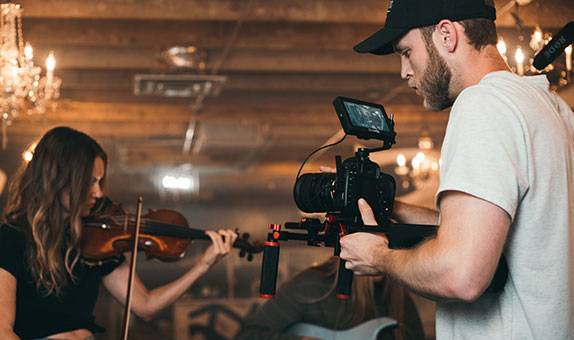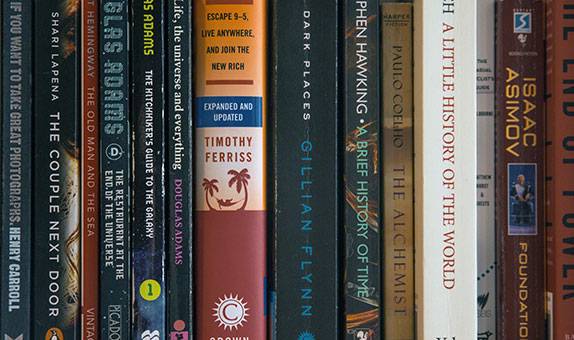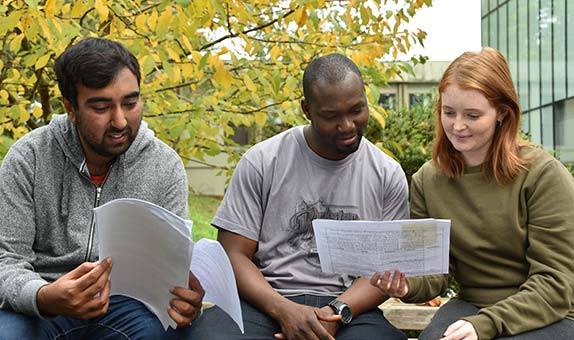Media and Communication MA
Why choose this course?
The course is suitable for all professions in the media industries. It covers a wide range of communications, marketing, PR, advocacy, problem-solving, and creative skills.
You will develop a critical understanding of today's media landscape and communication practices, enabling you to develop a versatile and rich portfolio of media works. You will also investigate new developments in analogue and digital media, and in emerging fields, such as the VR industry, algorithmic governance, experience design, social media psychology, and digital content creation.
Through option modules, and the choice between a written or practice-based dissertation, you can research chosen areas in greater depth under the supervision of academic mentors and personal tutors.
| Mode | Duration | Start date |
|---|---|---|
| Full time | 1 year | September 2025 |
| Full time | 2 years including professional placement | September 2025 |
| Part time | 2 years | September 2025 |
| Main Location | Penrhyn Road |
Reasons to choose Kingston University
- Our curriculum covers the recent developments in media technologies, industries and cultures, both locally and globally.
- Develop a portfolio of multi-media works through authentic assessments based on real-world contexts.
- A diverse and multicultural learning environment with a student body from different backgrounds, countries, occupations and experience of media.
The Art School Experience
As part of Kingston School of Art, students on this course benefit from joining a creative community where collaborative working and critical practice are encouraged.
Our workshops and studios are open to all disciplines, enabling students and staff to work together, share ideas and explore multi-disciplinary making.

What you will study
This course offers a critical overview and survey of today's media landscape and media environments. The coursework is a mixture of academic research and media practice, enabling you to build a wholesome professional portfolio of media projects.
Classroom teaching is supported by extracurricular activities; these include journalism lectures, publishing masterclasses, marketing and media industries events, and organised educational visits to media hubs in and around London.
You'll take three compulsory modules, including a dissertation, worth 120 credits in total. Then, you will choose from two optional modules worth 30 credits each. In total you'll complete 180 credits.
Modules
Optional placement year
The compulsory core modules give you a comprehensive grounding in the theoretical and empirical approaches to studying media institutions, texts and communication practices.
With a broad choice of option modules, you can specialise in research areas that interest you, and examine various media industries and communication practices within their historical, economic, political and social contexts.
Core modules
Media and Communication Dissertation
60 credits
This module enables students to demonstrate their ability to undertake a sustained piece of independent project in media and communication at an advanced level on a topic of their choice agreed in conjunction with their dissertation supervisor. Dissertations may be based on some primary research into a particular case study, archive or canon in combination with an engagement with secondary material, criticism or literature review. Students can either undertake a standard dissertation (12- 15,000 words) or a practice-based dissertation (plus a maximum of 5,000 word reflection on practice and/ or the creative process). The second part of MD7001 provides the teaching for this module, and covers research skills such as constructing a proposal, editing and composition, reflection on practice, referencing, and on online and electronic research methods.
Media and Globalisation
30 credits
The culture of the West is no longer the sole driver of globalisation. All nations around the world are enjoined to compete on multiple media platforms and cultural arenas where culture and economy are conjoined across globalized communications networks. At the same time, even as national cultures seek to position their ‘brands' in the global ‘marketplace', they are challenged by trans- and post-national corporations, particularly new media companies among the wealthiest in the world.
The rise of popular social and nationalist movements contesting the inequalities represented by these elites take place, similarly, across global media networks. This module explores the current debates around the cultural politics of the new globalization that is continually being transformed by the radical changes being introduced by technological ‘disruptions' that have collapsed familiar spatial and temporal dimensions of the world. Through addressing pertinent theoretical perspectives and case studies from different parts of the world, the module examines the political, social, cultural and moral issues that arise in the context of the new realities and conflicts being produced and facilitated by globalized media and communication.
From Mass Media to New Media: Theories, Approaches, Applications
30 credits
This module provides a broad-based exploration of the conceptual history of electronic and digital media technologies and their effect on society, culture and politics. Contemporary case studies from everyday media are used to evaluate the usability of different theoretical frameworks discussed in the first part of the module. These are organised into three major topics.
1) The transition to managerial governance, cultural politics, consumer cultures and the media industries.
2) The analogue-digital interface in media aesthetics and media art.
3) Emerging trends in theorising new media and digital cultures.
Optional modules
Freedom, Censorship and Subversion
30 credits
This one-semester module is an elective primarily offered to students taking an MA in Media & Communication or an MA in Film but it is also relevant to those taking postgraduate degrees in politics, political communication, human rights and conflict. It deals with some of the most hotly-debated issues in different societies about how to balance core freedoms (expression, press and protest) with the state protecting what and who may be potentially harmed by certain forms of expression through censorship. Even then, these remain open debates as new forms of subversion and resistance emerge with new technologies or through the use of the body to express protest. The module explores these at two levels. The first outlines different approaches to, and principles governing, censorship depending on whether expression is through images, words, ideas and beliefs, information or action. These are then explored more deeply in sessions that draw on staff specialisms, for instance, in film, news, information-privacy and protest movements.
Creating Magazines: Content and Context
30 credits
This module aims to provide you with the practical skills necessary to work as successful journalists, underpinned by an understanding of the constraints and tensions inherent in magazine offices, and online operations developing in a changing industry. You will examine the structure of this fast-expanding sector, with a particular emphasis on the role played by freelance journalists and production staff in generating content.
You will have the opportunity to acquire the core skills for producing online and print publications which will include the use of social media/analytics/branding/research and interview techniques. You will be equipped with multimedia reporting, production and design skills in demand in the journalism industry and will be confident about telling stories through video and audio as well as the written word.
The module offers valuable opportunities for you to work together to produce and run your own group website, and magazine, developing your teamwork skills and experiencing the reality of different job roles in a multimedia operation. This classroom experience will provide a valuable introduction to the two-week work placement all students will be required to undertake as part of the module.
The Archive in Contemporary Media Cultures
30 credits
This module explores content creation through physical and digital archives in the contemporary media landscape; it shows how archival practices shape personal, local, and global memories, identities, and stories. The module aims to consider the diverse ways in which we encounter the modern archive, its spaces, uses, and formats, to gain an understanding of how archives and archival methods are being creatively reinvented and disrupted in traditional and digital media environments.
The module also examines the changing role of the archivist, the politics of data collection and storage in the digital era and how it impacts our perception of current events and the world we live in today. The module invites students to interrogate gaps and absences in archives to develop ethical and globally aware practices of excavating marginalised voices.
Students will gain critical and practical skills to navigate different types of analogue and digital media archives through their own practical engagement and digital experience, to recognise themselves as archival practitioners.
Special Study: Art/ Media Management and Production
30 credits
This special study examines art / media management and production in relation to opportunities and challenges posed in the current digital landscape. Students are able to familiarise themselves with how projects are managed; rights management issues, defining and understanding rights in the context of their own topical areas of interest; professional practice; and/or, production work.
Looking at such rights as copyright, brand rights, image rights, privacy, freedom of expression and information, censorship, and regulation - students explore how these work in practice. They also develop knowledge and understanding of the use of agreements and of licensing, and relate these to art / media production and, professional practice. Students have a wide range of case studies to focus on: film, music, fashion, advertising, PR, publishing, and art; global media production and cultures of appropriation.
There will be an opportunity for portfolio development and the study of theoretical aspects of ‘digital disruption', the impact and use of free / open media and, how making media is affected by share culture, remix/mashups. Production work with archives and issues raised by archival rights are an important focus and students learn how to navigate these. To understand what happens to art and media work once produced, students look also at distribution, the rights affecting distribution, and the impact on these of e.g. download culture, cultural appropriation, globalisation; transborder flow, media convergence and spreadability.
Students may EITHER write an extended essay OR engage in production or practice-based projects. The focus topics are wide and based on student choice (such as, in the past, free expression and identity; cyber-bulling & social media; documenting conflict; PR and reputation work; culture jamming; brand management; style and advertising; online art trade; music production).
The output options are also wide ranging (from critical essays; to video essay; blogs; podcasts / vlog websites; music and video mashups; short video documentary). There is a substantial opportunity to transfer employability skills and knowledge acquired in the module to a range of professional contexts.
Issues in Contemporary Media and Culture
30 credits
This module seeks to synthesize and draw together students' understanding of theoretical and contextual approaches to the interpretation of media and culture, which they have learnt about in the first two years of the degree. Furthermore, the module enables students to apply this heightened understanding of theory to analysis of contemporary issues, practices and debates reviewed in the module.
The module is taught in different strands, to provide students with a breadth of themes and specialists subjects on the most contemporary issues in media and communication, which are being debated and discussed both by the public and by academics. The content of the strands may range from discussions on consumerism, neoliberalism, and selfie culture, to debates about art, creativity and digital technologies.
Each strand is taught by a different lecturer and has its own syllabus and reading lists. Whilst the number and specific focus of the strands may vary from year to year, the content is always current and teaching delivery pattern as well as assessments in various strands remain the same.
Television Production
30 credits
This is a practical module designed to enable you to experience and work in a professionally-focused industry environment, and develop television production skills such as multi-camera operation, sound, mixing and teleprompting.
You will learn how to work and operate a professional broadcast studio as well as developing TV production skills. In addition, you will build on and reinforce employability skills such as problem-solving, time management and dependability sought by employers looking to fill graduate positions. You will be encouraged to reflect on your professional practice and critically evaluate your teaching and learning contributions.
This module builds practical and theoretical knowledge and skills towards the creation of a final year production piece. You can make either TV drama or TV documentary but must use the production studio for at least part of their production. This caveat will contribute to the wide range of skills that the industry demands of graduates.
The Professional Placement module is a core module for those students following a masters programme that incorporates professional placement learning, following completion of 120 credits. It provides students with the opportunity to apply their knowledge and skills in an appropriate working environment, and to develop and enhance key employability skills and subject specific professional skills in their chosen subject.
You may wish to use the placement experience as a platform for your subsequent major project module, and can use it to help inform your decisions about future careers.
Please note
Optional modules only run if there is enough demand. If we have an insufficient number of students interested in an optional module, that module will not be offered for this course.
Entry requirements
What our students say
Teaching and assessment
Essays, reports, position papers, presentations, research projects, practice-based projects, and dissertation (either written or practice-based).
Who teaches this course?
On this course, you will meet a diverse cohort of international students with professional experience in the media industries. You will benefit from a multicultural study environment, thanks to the wide range of postgraduate courses on offer. The Faculty's combination of academics and practitioners creates a unique environment in which to further your studies and your career.
The Faculty provides a vibrant and forward-thinking environment for study with:
- courses designed in collaboration with industry professionals – keeping you up to date with the latest developments
- established connections with the London arts and media scene – with a range of guest speakers, professors and lecturers visiting the University
- committed and enthusiastic staff – many of whom are expert practitioners as well as leading academics and researchers.
Postgraduate students may also contribute to the teaching of seminars under the supervision of the module leader.
Fees for this course
Additional costs
Depending on the programme of study, there may be extra costs that are not covered by tuition fees which students will need to consider when planning their studies. Tuition fees cover the cost of your teaching, assessment and operating University facilities such as the library, access to shared IT equipment and other support services. Accommodation and living costs are not included in our fees.
Where a course has additional expenses, we make every effort to highlight them. These may include optional field trips, materials (e.g. art, design, engineering), security checks such as DBS, uniforms, specialist clothing or professional memberships.
Facilities
There is a wide range of facilities at our Penrhyn Road campus, where this course is based. You will have access to a modern environment with the latest equipment, including our specialist film and media labs, equipped with iMacs running software including Final Cut Studio Pro and the Adobe Creative Suite.
Students also have access to a film studio facility with backgrounds and green wall, as well as a fully equipped audio recording facility running Logic Pro and Pro Tools.
Other media facilities, including professional standard moving image and photography suites, are available at Knights Park campus, where many of our art, design, architecture and creative courses are taught.
General facilities
The library offers:
- subject libraries, plus a free inter-library loan scheme to other libraries in the Greater London area
- online database subscriptions
- a wide selection of resource materials.
Resources in London
From Kingston, it's just a 30-minute train journey to central London. Here you can access a wealth of film-related resources, media hubs, and exhibition centres.
Funding and bursaries
Kingston University offers a range postgraduate scholarships, including:
If you are an international student, find out more about scholarships and bursaries.
We also offer the following discounts for Kingston University alumni:
After you graduate
Many students progress from internships to full-time roles. They work in the media and cultural industries, government, PR, publishing, radio and journalism, social media content creation, or launch successful start-ups.
Links with business and industry
There are always interesting activities taking place at Kingston and exciting opportunities to take advantage of, from guest lectures to special screenings. We have previously welcomed feature writers for the Guardian, Time Magazine, and investigative journalists who covered global politics
Media colleagues organise and host international conferences on a wide range of subjects including the E-Poetry Conference, Black Metal conference, Hegel and world history conference, and "BTS: A Global Interdisciplinary conference" (2020).
Regular lunchtime lectures take place with exciting guest speakers like James Ball, a special correspondent at BuzzFeed UK. He played a key role in the Pulitzer Prize-winning coverage of the NSA leaks by Edward Snowden.
James Jones, renowned investigative and undercover producer and filmmaker for the BBC, who films in North Korea, Syria, Iraq, Palestine, Ukraine and Russia, has also guest lectured.
Research areas
Many of the staff in the media department are research active. Their portfolio of academic works, digital art exhibitions and practical projects covers a wide range of disciplinary areas. These include video production, digital art, electronic literature (see Maria Mencia #WomenTechLit: Computing Literature), continental philosophy (see Hager Weslati: Hegel, Logic and Speculation), globalisation theories and the music industry (Scott Wilson: Scott Walker)
Course changes and regulations
The information on this page reflects the currently intended course structure and module details. To improve your student experience and the quality of your degree, we may review and change the material information of this course. Course changes explained.
Programme Specifications for the course are published ahead of each academic year.
Regulations governing this course can be found on our website.



